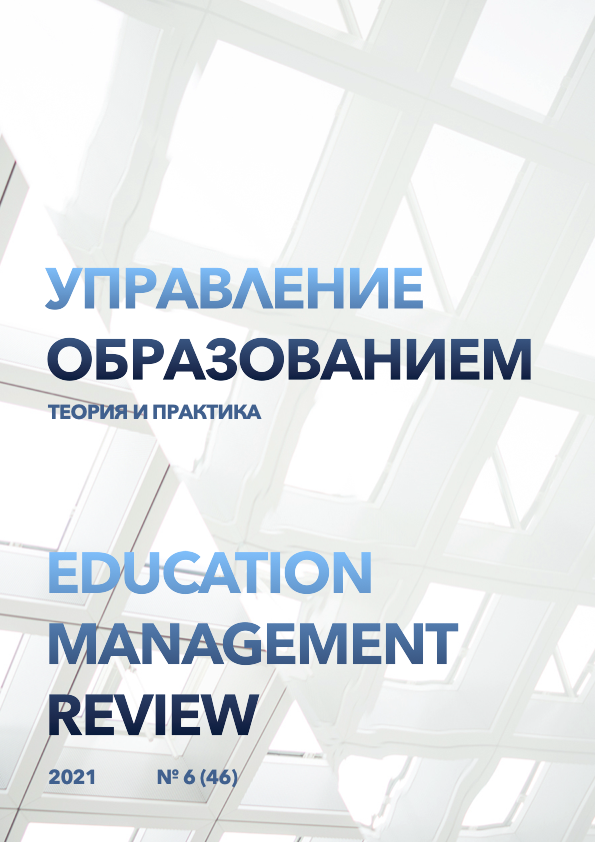Continuity of anticipating socialization of young people into the society of the future
DOI:
https://doi.org/10.25726/w9476-6103-5118-jKeywords:
anticipating socialization, sustainable development of society, continuity, green axiomAbstract
The article defines anticipatory (anticipatory) socialization as mastering the views, rules, norms, style and values of a social group, society, to which one does not belong, but strives, would like to belong. The possibility of trying out, rehearsal of new social interaction, trying on social roles and social relations in the light of planetary strategic tasks of sustainable development is considered. It is proved, that the central ontological, axiological and praxiological category of advanced socialization for sustainable development is the ecological imperative (N.N. Moiseev), which directs to cardinal changes of relation of the person to the nature, rethinking and redesigning of the way of life, formation of ecologically responsible outlook and values. The problem of continuity of advanced socialization of youth, formation of abilities to anticipate, forecast their future life, to "try" to change their attitudes and behavior, to create a "draft" of variable life scenarios, to carry out their real search is raised. Regenerative education is considered as a means of ensuring the continuity of anticipatory socialization, focused on the formation of young people the foundations of the culture of sustainable development based on the continuity of the language picture of the world, including new conceptual metaphors reflecting the key categories of sustainable development and basic archetypal cultural concepts.
References
Будаев Э.В., Чудинов А.П. Современная теория концептуальной метафоры: американский и европейский варианты // Вестник Воронежского государственного университета. Серия: Лингвистика и межкультурная коммуникация. 2007. № 1–2. С. 10–22.
Гумбольдт В. фон. О различии строения человеческих языков и его влиянии на духовное развитие человечества // Избранные труды по языкознанию. М.: Прогресс, 1984.
Дзятковская Е.Н. Образование для устойчивого развития в школе. Культурный концепт. Зеленая аксиома. Трансдисциплинарность: монография. Москва, 2015. 320 с.
Дзятковская Е.Н., Пустовалова В.В. Дидактическое обеспечение непрерывности экологической составляющей учебных предметов // Непрерывное образование: XXI век. 2019. Вып. 2 (26). − DOI: 10.15393/j5.art.2019.4664
Дзятковская Е.Н., Якунина И.Н. Метафорическая картина мира как фактор социализации молодежи // Ценности и смыслы. 2018. №6. С.114-129.
Лакофф Д., Джонсон М. Метафоры, которыми мы живем. М.: Едиториал УРСС, 2004. 256 с.
МакКормак Э. Когнитивная теория метафоры / пер. с англ. А.Д. Шмелева // Теория метафоры: сб. М.: Прогресс, 1990. С. 358–386.
Мардахаев Л. Социальная педагогика краткий словарь понятий и терминов. РГСУ. Москва: Российский государственный социальный университет, 2016. – С. 364. ISBN 978-5-7139-1235-2
Моисеев Н. Н. Человек и ноосфера. М.: Молодая гвардия, 1990. С.352
Моисеев Н.Н. Восхождение к Разуму : Лекции по универсальному эволюционизму и его приложениям. М.: Фирма коммерч. рекламы и науч.-техн. пропаганды «ИздАТ», 1993. 175 с.
Попова З.Д., Стернин И.А. Когнитивная лингвистика. М.: АСТ: Восток Запад, 2010. 314 с.
Пустовалова В.В. Метафора в педагогике: монография. М.: Образование и экология. 2016 г. 264 с. ISBN 98-5-94078-014-4
Саямов Ю. Н. Будущее образования – в образовании для будущего // Образование 2030. Дорожная карта. Сборник статей международной научно-практической конференции. Под ред. Е.Н. Дзятковской, В.В. Пустоваловой. М.: Издательство «Перо», 2021. С. 268.
Щедровицкий Г. П. Философия. Наука. Методология. М.: Шк. культ. полит., 1997. 641 с.
Education for sustainable development: a roadmap // UNESCO. 2020. 76 p. https://unesdoc.unesco.org/ark:/48223/pf0000374802
Haugen E.The Ecology of language // Essays. Standford: Standford University Press, 1972. 366 p.
International Commission on the Futures of Education Progress Update March 2021 URL:https://en.unesco.org/futuresofeducation/2021-consultations (дата обращения: 28.10.2021).
Karlsson R.Three metaphors for sustainability // The Anthropocene Review. 2016. Vol. 3(1). P. 23–32 https://journals.sagepub.com/doi/abs/10.1177/2053019615599415?journalCode=anra
Kopnina H. Revisiting Education for Sustainable Development (ESD): Examining anthropocentric bias through the transition of environmental education to ESD // Sustainable Development. 2014. Vol. 22. P. 73–83.




